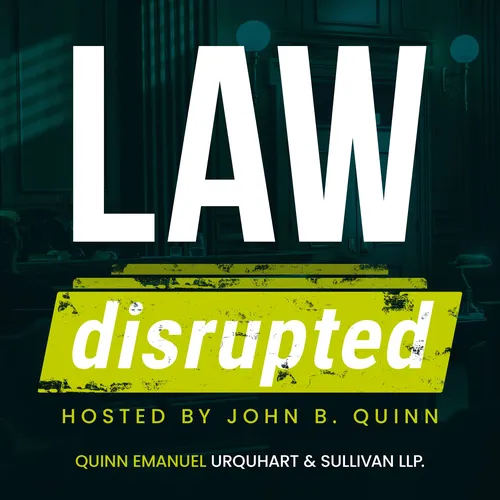Inside Japan’s Evolving Legal Culture
- Author
- Law, disrupted
- Published
- Thu 04 Sep 2025
- Episode Link
- None
John is joined by Hidetaka Mihara, Senior Counsel at Tokyo International Law Office. They discuss three major legal developments in Japan: (1) the criminal and civil litigation arising from the 2011 Fukushima nuclear disaster, (2) the rise of shareholder activism, and (3) Nippon Steel’s acquisition of U.S. Steel.
On March 11, 2011, a massive earthquake and ensuing tsunami triggered the Fukushima nuclear disaster. Executives at the company that ran the nuclear power plant had been warned of tsunami risks years before the event, but did not report the risk to the government until days before the earthquake. The trial court found the executives not guilty of criminal negligence reasoning that tsunamis of this size were so rare and the cost of addressing the risk, cutting off electricity to the region while repairs were made, was so high that the company’s delayed report did not amount to negligence. Related civil claims against the government and management were also dismissed, with courts holding that neither breached their obligations under Japanese law. Despite some public criticism, most Japanese have moved on from the tragedy, focusing on rebuilding rather than retribution.
The recent rise of shareholder activism in Japan is a notable shift in a culture traditionally averse to corporate confrontation. This rise follows reforms in Tokyo Stock Exchange rules, greater emphasis on corporate governance, and changes in ownership thresholds that empower minority shareholders to propose changes. One example is the Seven & i Holdings case, in which activists pushed for a corporate restructuring. While their proposal failed, their recommendations for improving the company were eventually adopted by management. Although shareholder litigation remains rare in Japan, shareholder proposals and negotiations have become increasingly effective, aided by the gradual unwinding of entrenched cross-shareholding relationships.
Finally, Nippon Steel’s acquisition of U.S. Steel which has been politically controversial in the U.S., is widely seen in Japan as a strategic and mutually beneficial partnership. Japan views the acquisition as a way to strengthen both nations’ competitiveness against Chinese and Indian steelmakers. Ultimately, the U.S. government approved the acquisition based, in part, on obtaining “golden share” rights, including the right to block certain potential managerial changes at the company.
The conversation reflects how Japan’s legal and corporate culture is gradually adapting to global norms while maintaining its distinct approach to risk, accountability, and trust.
Podcast Link: Law-disrupted.fm
Host: John B. Quinn
Producer: Alexis Hyde
Music and Editing by: Alexander Rossi
